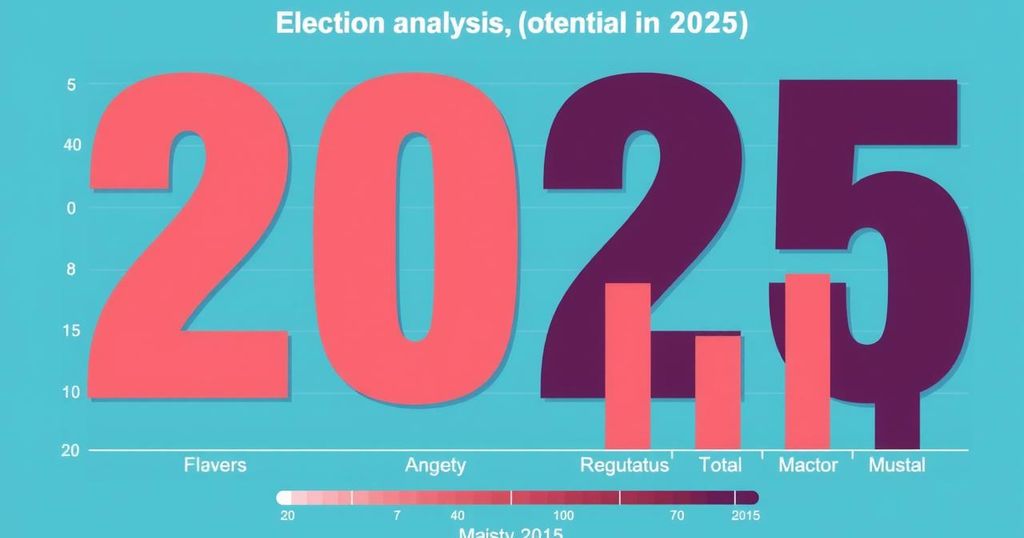2024 has been a difficult year for incumbents as they faced unprecedented electoral losses across developed democracies, largely driven by voter dissatisfaction with inflation. Experts suggest a shift in voter behavior, leading to increased volatility, which may continue into 2025. Key political leaders are under threat amidst this changing landscape, highlighting the need for a balance between accountability and the recognition of effective governance.
The year 2024 has been characterized as a pivotal moment in democratic politics, branded as “the year of democracy.” However, it might also be remembered as a challenging year for incumbents, with every ruling party in developed nations facing disappointing election outcomes. This unprecedented trend marks a departure from the long-held belief that incumbents enjoy a significant advantage. Voters are increasingly demonstrating a preference for change, reflecting a shift from the adage “better the devil you know” to a desire to “throw the rascals out.” This article analyzes the implications for the upcoming 2025 elections and the factors influencing incumbents’ prospects.
Historically, incumbents have held a considerable advantage in governance, particularly in affluent democracies where political shifts occurred after long periods of stability. However, recent trends indicate volatility within these democracies, akin to the political landscapes traditionally seen in emerging nations. Ben Ansell, an esteemed political scientist at the University of Oxford, notes that affluent democracies have become more turbulent, making incumbency a more precarious status.
The root causes of the incumbents’ struggles in 2024 can largely be attributed to rampant inflation, exacerbated by the aftermath of the COVID-19 pandemic and geopolitical tensions due to the war in Ukraine. The resulting inflationary pressures have been met with voter dissatisfaction. Historical comparisons reveal that while prior crises did not lead to significant inflation, the current situation is perceived as a direct failure of the sitting governments. Remarkably, Isabella Weber, an economist, emphasizes, “Unemployment weakens governments. Inflation kills them.” Meanwhile, Claudia Sheinbaum’s successful price control measures in Mexico illustrate strategies that incumbents may adopt to stabilize their political standing.
As voter behavior continues to evolve, the erosion of partisan loyalty further complicates the incumbents’ situation. Roberto Foa, from the Centre for the Future of Democracy, indicates that this shift has led to increased vote-switching and an openness towards new political actors who challenge established norms. Vicente Valentim notes the difficulty of reversing these trends, where previously marginalized views gain traction within the political discourse. The evolving political landscape suggests that voters are becoming increasingly consumer-like in their expectations, demanding immediate satisfaction and responsiveness from their leaders.
Looking forward, the political landscape for incumbents in 2025 appears equally uncertain, with significant elections scheduled in several democracies. Key leaders, such as Olaf Scholz in Germany and Justin Trudeau in Canada, face formidable challenges that could see them ousted amidst growing dissatisfaction. Opinion polls indicate challenging scenarios for incumbents if they fail to connect with voter concerns, as their political futures hang in the balance. Despite indications of a potential stabilization in inflation, cultural and structural dynamics continue to favor volatility in political allegiances.
The overarching conclusion is that while voters possess the right to hold their leaders accountable, the frequency of defeats could ultimately foster a detrimental political environment that neglects the necessity of rewarding competent governance. Adam Przeworski’s observation that democracy is characterized by the ability of parties to lose elections encapsulates the prevailing sentiment. Nonetheless, a political landscape devoid of rewards risks devolving into chaos, where the essential balance between punishment and incentivization is lost.
The article analyzes the recent electoral performance of incumbents in various democracies, particularly during the tumultuous year of 2024. It explores the historical context of incumbency advantage and the emerging trends indicating a shift in voter behavior towards a desire for change. Additionally, the piece examines economic factors, primarily inflation, as pivotal in shaping the electoral outcomes while also highlighting cultural dynamics that contribute to increased instability. The insights presented are grounded in expert commentary and recent electoral trends, offering a comprehensive view of the challenges facing incumbents as they approach 2025 elections.
In summary, the electoral landscape for incumbents has experienced considerable upheaval, driven by inflation and shifting cultural dynamics. As the year 2025 approaches, incumbents may face significant challenges, with many voters currently favoring change. The growing volatility in political support underscores the necessity for leaders to adapt strategically to evolving voter expectations. Ultimately, while voters are justified in seeking accountability, a balance must be struck to ensure that competent governance is recognized and rewarded, as the democratic process thrives on both accountability and affirmation.
Original Source: www.cnn.com






